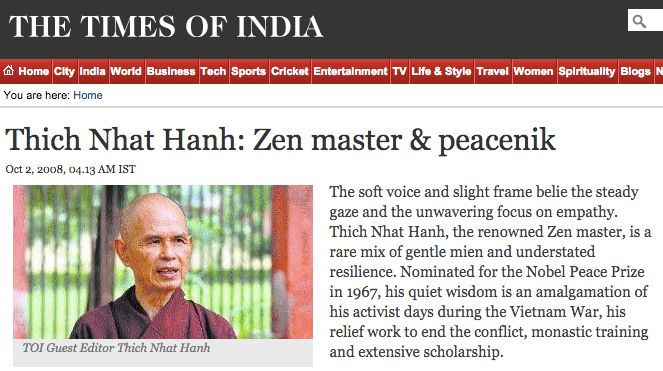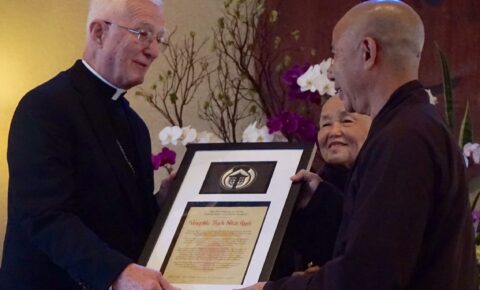 Thich Nhat Hanh:
Thich Nhat Hanh:
Zen master & peacenik
The soft voice and slight frame belie the steady gaze and the unwavering focus on empathy. Thich Nhat Hanh, the renowned Zen master, is a rare mix of gentle mien and understated resilience. Nominated for the Nobel Peace Prize in 1967, his quiet wisdom is an amalgamation of his activist days during the Vietnam War, his relief work to end the conflict, monastic training and extensive scholarship.
Unable to remain insulated from the ravages of war, he wrote to Martin Luther King Jr, pointing out that death to the oppressor is not what monks (who had self-immolated) sought, but an end to oppression, hate and discrimination. His letter marked a turn that led to growing anti-war sentiments in the US and Luther King nominated him for the Peace Prize.In 1964, he established a monastic and lay order, the Order of Interbeing. He also founded the Van Hanh Buddhist University in Ho Chi Minh City and has taught at Columbia University and the Sorbonne.In 1982, he set up a retreat, Plum Village, in south-west France where he lives in exile with fellow monks and nuns. Now 82 years old, he has published more than 85 widely-read titles and conducts international retreats. His philosophy of Engaged Buddhism and techniques of Mindfulness Meditation draw millions to his unique teachings.He is the inspiration behind the ethics committee in the Indian Parliament — which was set up after he met the then Vice President K R Narayanan. Active in the peace movement, he has guided retreats for Israelis and Palestinians, engaging them to listen to each other.
Compassion being the master’s signature, Thich Nhat Hanh has picked up the pen before as editor-in-chief of the journal Vietnamese Buddhism in 1956. His words, then and now, are a call to disarm and ensure peace in every step.
This article appeared in the Times of India on 2 October, 2008, introducing Thich Nhat Hanh as the Guest Editor for the day. You can read it on their website here.  Thich Nhat Hanh:
Thich Nhat Hanh:




Share Your Reflections